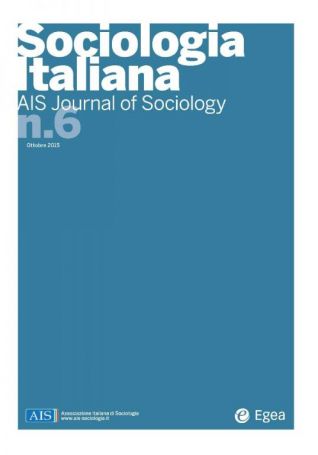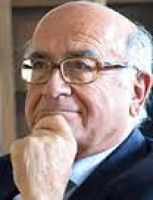AIS
2015/6
Sul significato culturale del limite (The cultural meaning of «limits»), di Carlo Mongardini
L’esplosione della tarda modernità nel tentativo di esaltare la vita al di là di ogni forma che la fissi culturalmente e storicamente ha trasformato la cultura in una «cultura del presente». Al suo interno la vita, nella sua effervescenza, non incontra più limiti. Raggiunge l’«illimitato», dove ogni contenuto, ogni indirizzo, ogni significato trova ospitalità e legittimazione. Ma se nell’illimitato presente la vita esplode senza confini né controlli, proprio perché il presente è un tempo che non finisce mai, ciò moltiplica anche le incertezze, le insoddisfazioni e le paure. Così mette in crisi la stabilità del legame sociale e le identità singole e collettive. La contrapposizione fra la pulsione vitale e l’esigenza di limiti, per definire i rapporti sociali, le identità e le finalità dell’agire, crea quel «disagio della civiltà» (Freud) e quel «conflitto della cultura moderna» (Simmel), nei quali, senza l’equilibrio del «limite», alla spinta verso una sempre maggiore libertà si oppone l’imposizione di regole sempre più restrittive da parte di un razionalismo astratto. Il limite perciò significa non solo ordine, ma anche la potenzialità di aprirsi, a partire da una condizione storica certa, a un ulteriore processo di umana emancipazione.
The cultural meaning of «limits»
The late modern period has witnessed an explosion of attempts to elevate life above and beyond all forms that define it culturally and historically, transforming culture into a «culture of the present». Within this culture the dynamic spirit of life knows no bounds. It attains a «limitless» status where all contents, all directions, all meanings can be accommodated and granted legitimacy. But while in the unlimited present life explodes without boundaries or controls, because the present is a never-ending timeframe, it also multiplies uncertainties, frustrations and fears. This has the consequence of undermining the stability of social bonds and individual and collective identities. The contrast between the vital impulse and the need for limits to define social relations, identities and the purpose of human action gives rise to the «discontents of civilisation» (Freud) and the «conflict of modern culture» (Simmel), in which, without the balancing power of «limits», the drive towards ever increasing freedom comes up against increasingly restrictive rules imposed by an abstract form of rationalism. Limits therefore not only mean order, but also the potential, in certain historical conditions, to open up to a further process of human emancipation.
Keywords: Modernità, Cultura, Limite, Presente, Libertà, Modernity, Culture, Limit, Present, Freedom
DOI: 10.1485/AIS_2015/6_OTTOBRE_3343159
Pagine 27-41
L'ACCESSO A QUESTO CONTENUTO E' RISERVATO AGLI UTENTI ABBONATI
Sei abbonato? Esegui l'accesso oppure abbonati.

